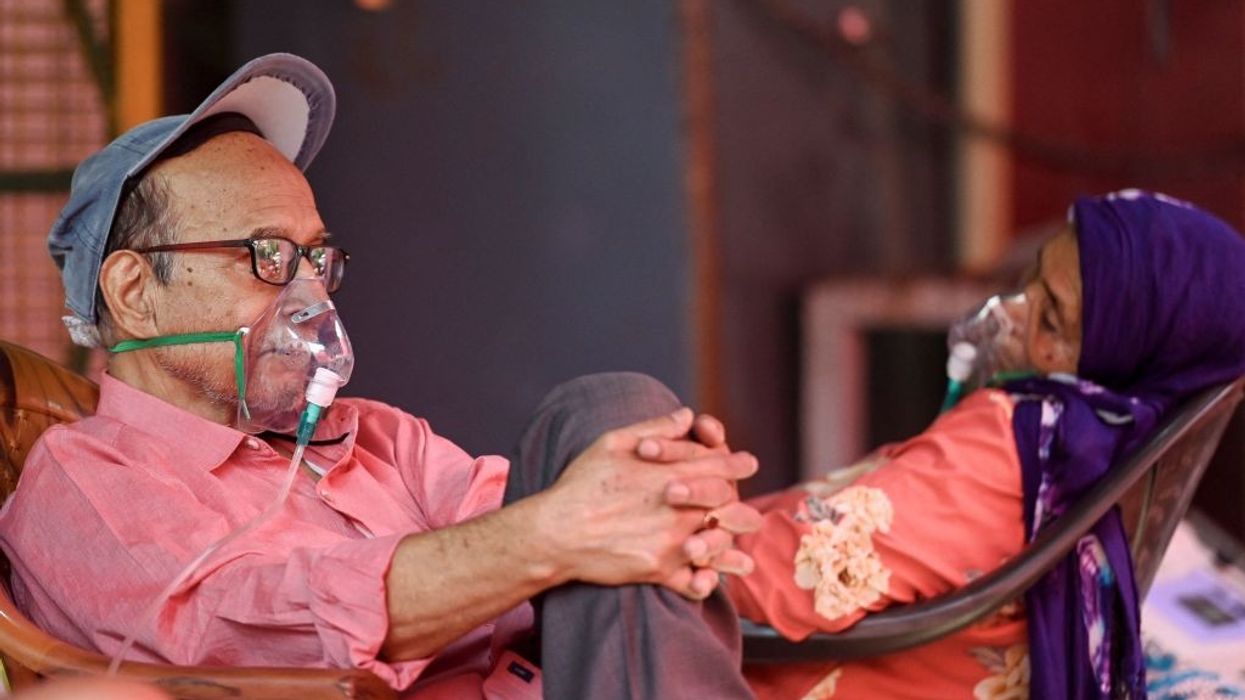INDIA reported a record 412,262 new Covid-19 cases on Thursday (6) and a record 3,980 daily death toll, as a second wave of infections swamps the health system and spreads from cities into the vast countryside.
Covid-19 infections in the world's second most populous nation have surged past 21 million, with a death toll of 230,168, health ministry data show.
Government modelling had forecast a peak in second wave infections by Wednesday (12).
"This temporarily halts speculations of a peak," Rijo M John, a professor at the Indian Institute of Management in the southern state of Kerala, said on Twitter.
With hospitals scrabbling for beds and oxygen in response to the surge in infections, the World Health Organization said in a weekly report that India accounted for nearly half the coronavirus cases reported worldwide last week and a quarter of the deaths.
Medical experts say India's actual figures could be five to 10 times the official tallies.
India's Covid-19 crisis has been most acute in the capital, New Delhi, among other cities, but in rural areas - home to nearly 70 per cent of India's 1.3 billion people - limited public healthcare is posing more challenges.
"The situation has become dangerous in villages," said Suresh Kumar, a field coordinator with Manav Sansadhan Evam Mahila Vikas Sansthan, a human rights charity.
In some villages where the charity works in the northern state of Uttar Pradesh - home to about 200 million people - "there are deaths in almost every second house", he said.
"People are scared and huddled in their homes with fever and cough. The symptoms are all of Covid-19, but with no information available many think it is seasonal flu."
India's Goa state, a hugely popular tourist destination on the western coast, has the highest rate of Covid-19 infections in the country, with up to one in every two people testing positive in recent weeks, government officials said.
Prime minister Narendra Modi has been widely criticized for not acting sooner to suppress the second wave, after religious festivals and political rallies drew tens of thousands of people in recent weeks and became "super spreader" events.
The surge in infections has also coincided with a dramatic drop in vaccinations because of supply and delivery problems, despite India being a major vaccine producer.
Crisis situation for doctors
In the capital Delhi, fewer than 20 of more than 5,000 COVID-19 ICU beds are free at any one time.
Student doctors like Rohan Aggarwal, 26, recruited to fight the second wave, are being forced to make life and death decisions.
His Holy Family Hospital in Delhi normally has a capacity for 275 adults, but is currently caring for 385.
"Who to be saved, who not to be saved should be decided by God," Aggarwal told Reuters during a grim overnight shift.
"We are not made for that – we are just humans. But at this point in time, we are being made to do this."
The country's top scientific adviser has warned of a possible third wave of infections.
"Phase 3 is inevitable, given the high levels of circulating virus," the government's principal scientific adviser, K. VijayRaghavan told a news briefing on Wednesday (5).
"But it is not clear on what time scale this phase 3 will occur... We should prepare for new waves."
While India is the world's biggest vaccine maker, it is struggling to produce enough product for the surge in infections. Its two current vaccine producers will take two months or more to boost total monthly output from the current 70 million to 80 million doses.
US president Joe Biden on Wednesday threw his support behind waiving intellectual property rights for Covid-19 vaccines in a move to boost vaccinations worldwide.





